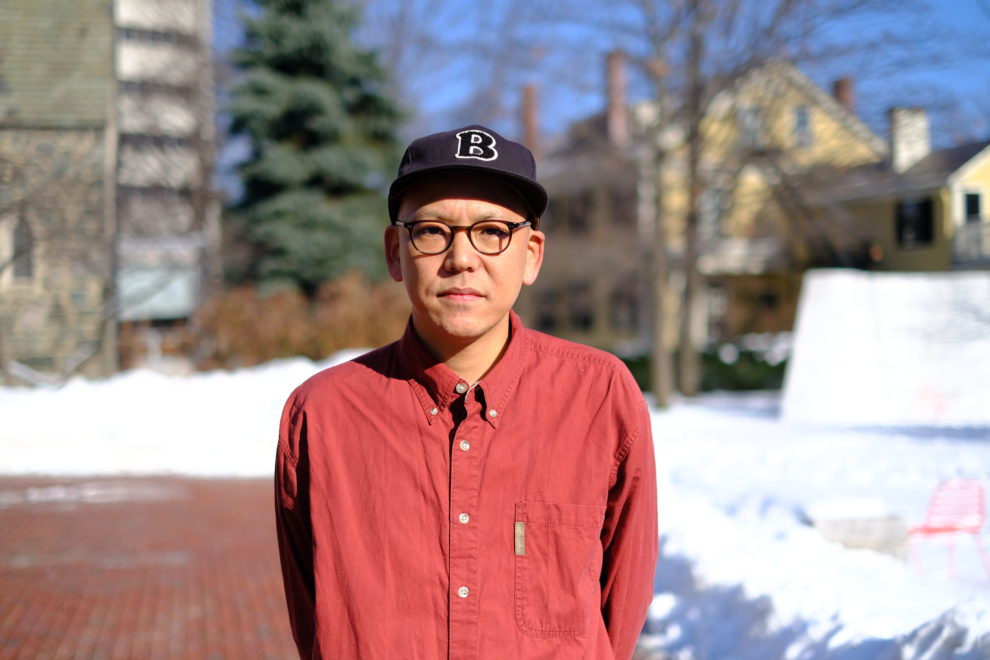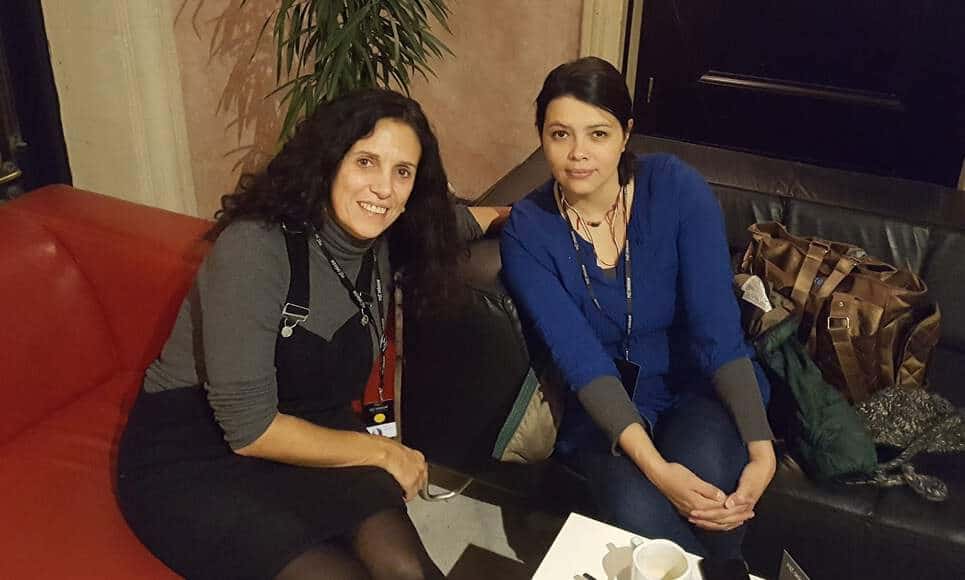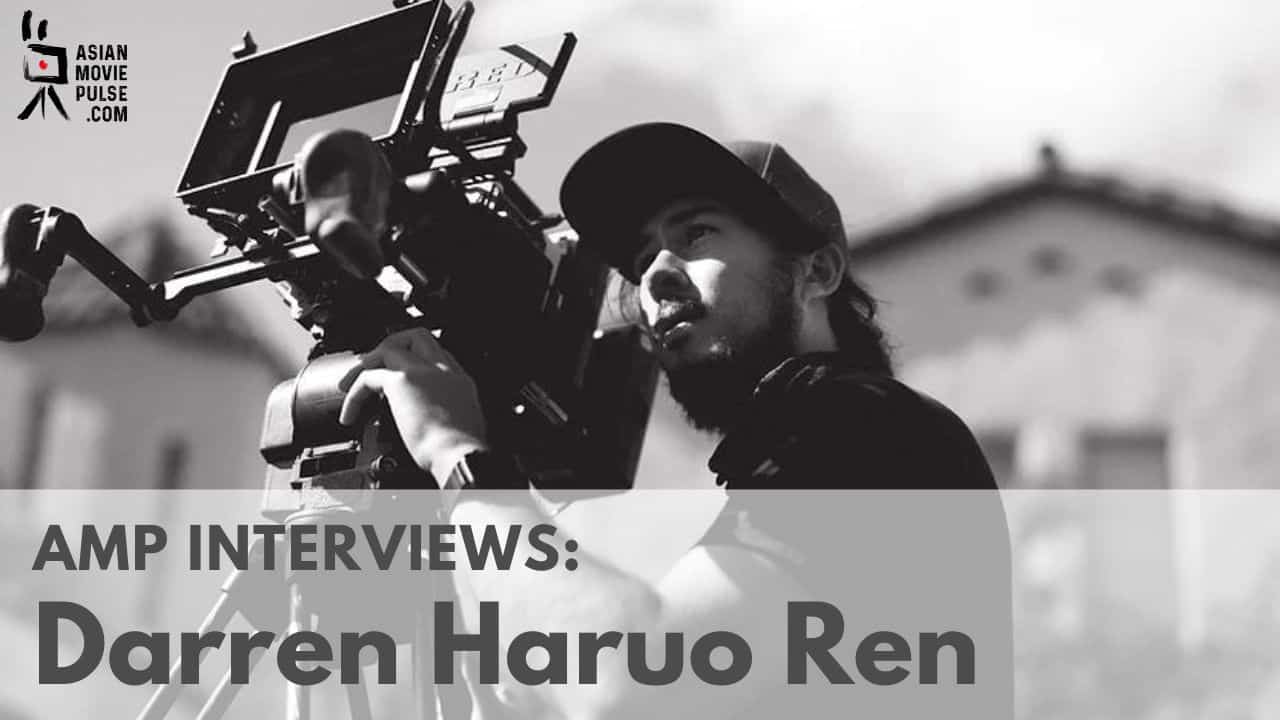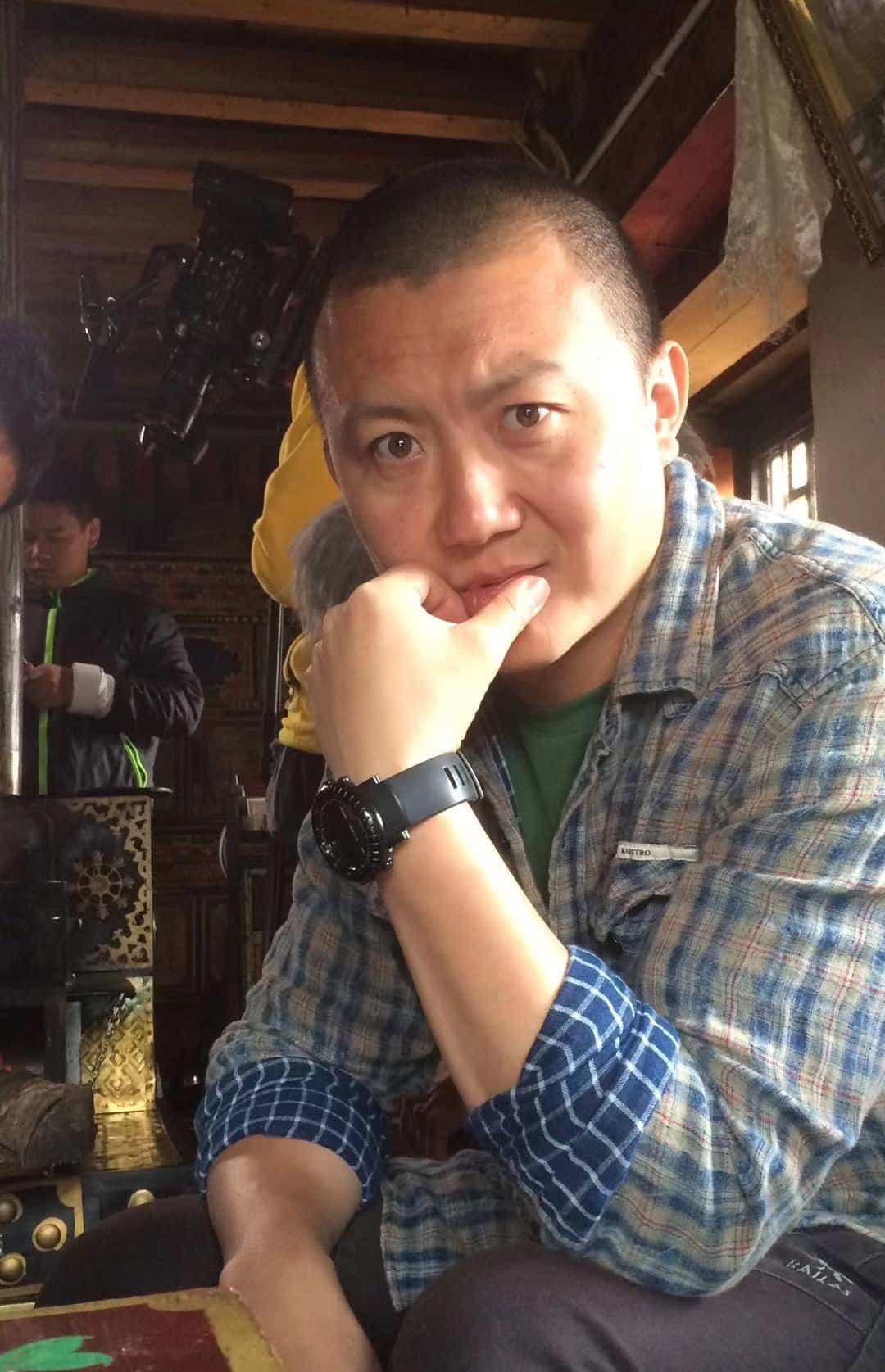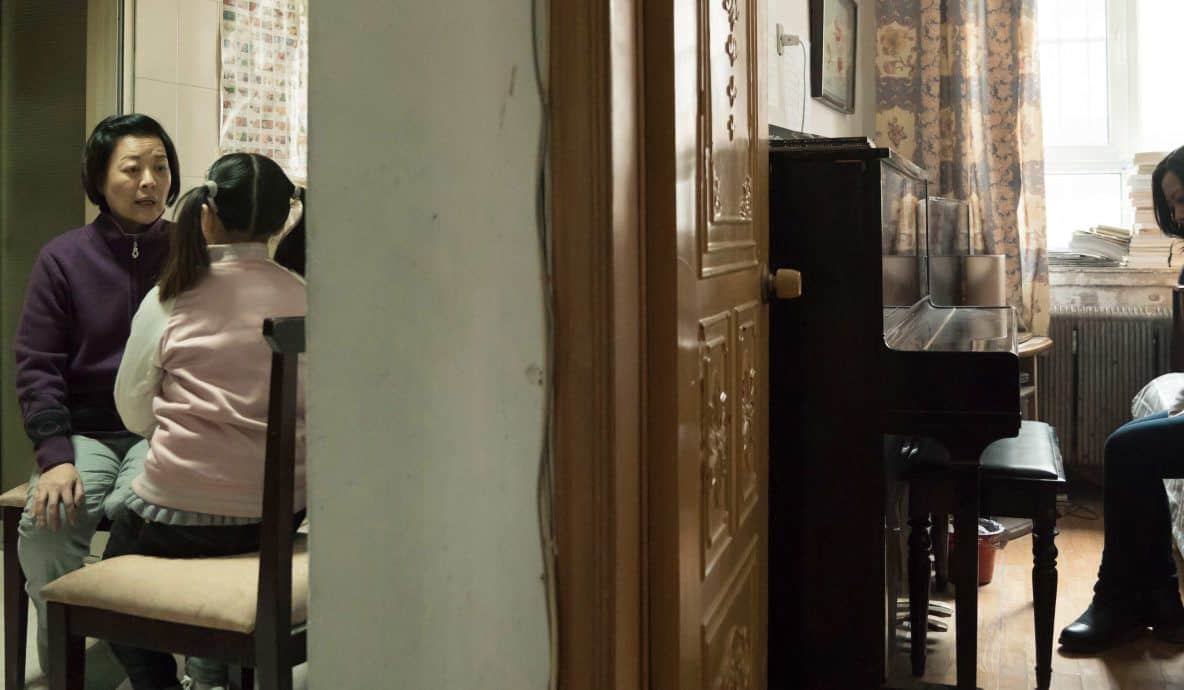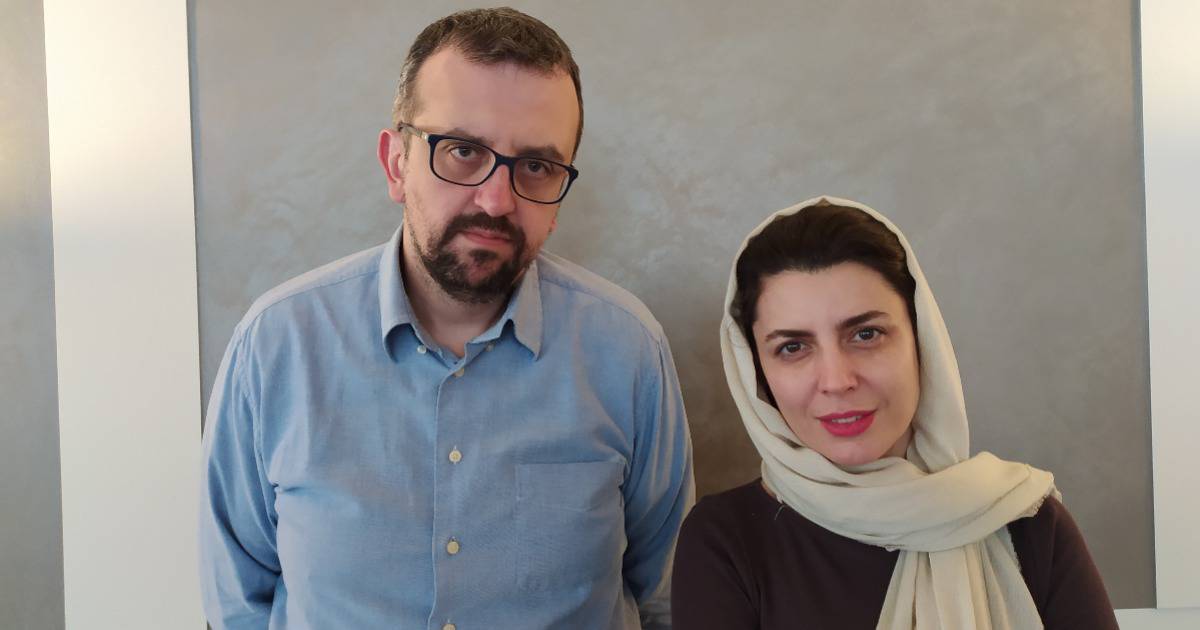Tetsuya Mariko (1981, Japan) studied at the University of Hosei and Image Forum. He received international recognition with his short film “Far East Apartment” in 2003. In 2007, he entered Tokyo National University of the Arts Graduate School Film and New Media. “Yellow Kid” (2009) was Mariko's graduation and first feature film. The second feature, after some years working on TV, was “Destruction Babies“, while “Miyamoto“, which is adapted from a TV series he also shot, is his latest feature.
On the occasion of “Miyamoto” screening at New York Asian Film Festival, we speak with him about the film and “Destruction Babies”, violence, love, working with Sosuke Ikematsu and Yu Aoi, his recent work, “MAYDAY”, while at the end, Mariko also shares a very interesting story.
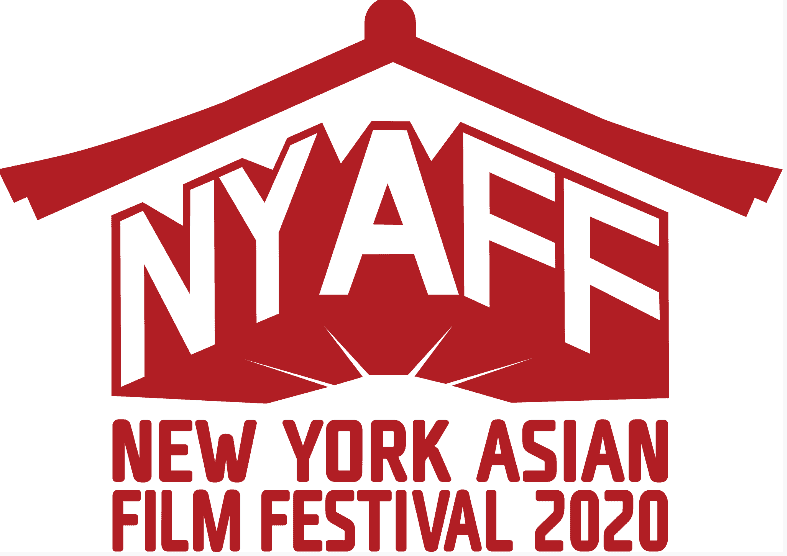
“Destruction Babies” refers to Nada Kenka Matsuri, a festival dedicated to the God of fighting. Can you tell us a bit more about the connection of the festival with the protagonist's actions?
I stayed in Matsuyama for a bit over a year and during that time I learned about the fighting festival and I thought that it was very interesting so I started researching it. I experienced a cultural shock the first time I encountered the festival so I took that idea and included it in the film. The concept of people with mikoshi clashing against each other is almost sunk in everyday life in Matsuyama. Therefore, I wanted to portray that Taira's violence comes almost naturally, that it is part of his nature and the environment he inhabits. Since I am from Tokyo, it was really shocking to see how deeply this culture is embedded within the local community; it is just part of their daily lives. I wanted to take that into Taira's violence.
Both “Miyamoto” and “Destruction Babies” are filled with violence. Why did you choose this approach and what is your opinion of violence in real life?
The violence in “Destruction Babies” and “Miyamoto” are two different things. I don't have any experience of actually being in a fight; however, I realize that in these days of social networks there is violence that does not affect you physically, directly, but indirectly, and it can be quite damaging.
One of the main concepts of the film is what would you do as a man, if someone stronger than you hurt the ones you love. What are your thoughts on the subject? Why does Miyamoto not call the police?
Miyamoto is just an ordinary salaryman who works for a company and he is not the man who would get into a fight in a way that damages him physically and mentally. However, he is asked to join the rugby team, something that does not fit him physically, but since he was asked, he joins. He is not really a physical type of person; he is not involved either in fights or in sports.
Miyamoto did not go to the police because Yasuko decided to confront Takuma by herself, turning the whole deal into a personal matter. Then, Miyamoto, who really loves her, thought that she wants to confront him, turning it into his own personal matter. That was their own personal decision, and Miyamoto wanted to deal with the issue by himself. I also thought at some point, that the solution could be going to the police, but I wanted to make the solution very personal, that is why I chose to have him taking this path.
Miyamoto presents the concept of love as something completely different than it is usually depicted in movies, something that can be the main source of violence. Why did you choose this approach?
I think that sometimes you find yourself in a position that you have to use violence. It is not often, but we see this in cinema when love means to confront an obstacle and you have to get over it to achieve love. In that regard, I do not feel that my movie is so different from others. However, in “Miyamoto”, probably the connection between love and having to fight exceeds other films in terms of the depiction of the concept. The “wall” that Miyamoto has to go over is much higher than similar obstacles in other films and he also approaches love in the same way. He has to use violence and make the decision to confront something so big. In the end, he wants to put himself all the way down for his love, he feels that he does not deserve anything for himself, unless he overcomes this obstacle. However, the violence that derives from his decision is not Yasuko's will, it is just Miyamoto wishing to confront himself to get over this big wall.
Yasuko is an ambiguous personality. Eventually, she comes to love Miyamoto, but also at times, she seems to exploit him, like in order to get rid of her former boyfriend for example. My question is, what kind of person is she, in your opinion?
I do not think that her behaviour is particularly unusual: however, she is older than Miyamoto and in the back story, her ex-boyfriend has been following her for so long that she has realized she cannot get out of the relationship on her own, due to their long history. Therefore, at the time when she and Miyamoto try to get together, she is still in a deep relationship with her ex-boyfriend. However, that does not make her different from other female characters. In Japan, this kind of relationships, where a woman is with a man who is rude and abusive, but she cannot get out due to their long history, is not uncommon. This was exactly the time Miyamoto met Yasuko. I wanted to portray Yasuko as a strong person who also has a sensitive and weak aspect to her character, so that these two different elements, strength and weakness, exist at the same time.
There are two very difficult scenes in the film. The one with the rape and the final fight between Takuma and Miyamoto. Can you give us some details about the way you shot these scenes? How difficult was it for the actors?
Yasuko's rape scene was a very difficult one. However, what I did is communicate with Yu Aoi regarding how she should act in that scene. So, we talked and talked and we had such deep communication as I wanted her to understand why this scene is crucial, why we have to do this, why it is needed. The key was communication with her. Of course, when we shot the actual scene, everyone was nervous but she managed to be relaxed and play the role as she should.
Regarding the final fight, we shot it from outside the staircase, which was about 10 storeys high, so safety was the first thing we considered. Therefore, we rented a studio, not in a high place, just a studio, in order to rehearse. We talked with the actors about the meaning of the scene, its importance and we practiced many times with the exact camera position we would use during the shooting, so that we could take the whole scene to the outside staircase setting. The actor who plays Takuma, Wataru Ichinose, is actually a martial artist. For him, the action was easy. Sosuke Ikematsu had to train intently to understand how to perform in this scene safely, because that was the most important part of this shooting. We practiced on the ground a couple of times, but we were very precise about the actors movements since the staircase is very narrow and we wanted to imitate that space on the ground. Then we took that but also added the excitement that derived from the fact that the actual scene was shot 10 storeys high.. I only had two days to shoot the fighting scene along with the one inside the apartment building, but in the end, we managed.
So, nobody got hurt, right?
No, they were ok.
In the rape scene, you have Miyamoto being completely passed out from drinking, while Takuma is raping Yasuko right next to him. Was that a comment also about overdrinking?
The reason Miyamoto drunk that much, to the point that he became completely unconscious, was partly because he wanted to appear macho to his boss, but his boss kept pouring him more drinks, so he thought it was a manly thing to meet the challenge. However, he did not realize he had drunk to the point that he was completely incapacitated. In Japan, we have this social structure, which dictates that if your boss says something to you, you really have to obey. If you are a salaryman and you are being taken to a party and you are asked to drink, even if you cannot any more, you still have to follow, you still have to obey. It is a problem for our society but it is still happening. I wanted to portray that phenomenon into the film. Furthermore, the power issue happened because Takuma's father is a client, so, Miyamoto, as a member of the company, cannot really go against his will, so he had to drink also because Takuma's father wanted him to. That structure made him drink so much.
Can you give us some details about the casting of the film? A number of the actors in the film are quite famous.
You say that they are famous but, for example, when I cast Sosuke Ikematsu, seven years ago, he was not yet a big name. We actually asked him many years ago, almost at the beginning of this project, which was around the time we also started working on “Destruction Babies”. Regarding Yasuko, I have seen so many Yu Aoi's films and I knew that she was such a great actress, so I also involved her in the early stages of the project. Regarding Pierre Taki, his character Mabuchi, in the script is macho and scary, terrifying actually. I thought very hard about how I should shoot this character but I knew Pierre Taki from his role at “The Devil's Path” and also as a musician. Since his physique fits Mabuchi's being big and, face-wise, a bit scary, we thought that he was good for the role. Furthermore, Mabuchi appears strong but also has a weakness: he cannot deal with his son. We thought that Pierre Taki could also portray this aspect.
So there were no auditions?
We only had audition for the character of Takuma, because it is difficult to find an actor of that size in Japan.
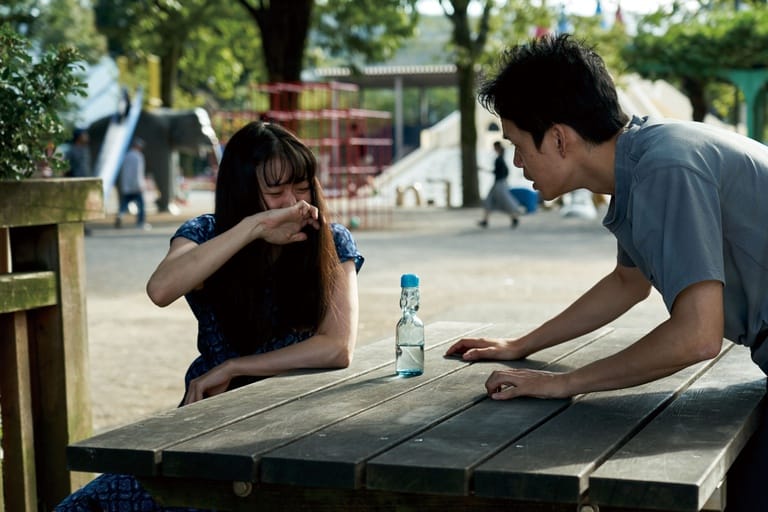
Can you give us some details about the music in the film? I particularly enjoyed the song heard after the final fight.
Thank you so much, I am really happy that you liked the music, because it is a very important component of the film. The composer of the score is Shoji Ikenaga. He also has his own band, that plays noise, and he also composes music for TV dramas, and he was actually the composer of the “Miyamoto” TV series. At that time, his reputation was not good but when the series became a movie, we had deep communication about the meaning of the movie, the whys and the whats, and in the end, this communication paid off as the music became such an important component of the movie. It adds so much color and taste to the film. It took so long to arrive at that outcome but I was very happy about the result and I am so happy to hear that you liked it.
What is your opinion of the Japanese movie industry at the moment?
I have not been too active these days so maybe I am not completely up to date regarding the industry. However, what I feel is it is getting more difficult in general. Because of the Coronavirus, it is difficult to reserve budgets and also in the theaters, there are now limited seats available. I also feel that film in Japan is just an extension of the TV shows but maybe this should change, since a number of people in the industry share this feeling
Are you working on anything new at the moment? You mentioned you are shooting a short film in the US.
Yes, at the moment I am shooting a short film, but first, I would like to talk about my third feature film, “MAYDAY” which I finished in March/April and it is now screening on Amazon Prime Japan. When I returned home after a year of staying in the States, the state emergency order was released and it was the moment the world was getting into detention. So, I asked from friends all over the world to send me a kind of video letter and I composed “MAYDAY” out of them. It became a film that I really love. Another one that I am working on was because I was a member of the jury at the Chicago International Film Festival last October and I met Yuki and other Chicagoans who are passionate about a film and I really liked sharing ideas with them. So we came up with a script for a short film festival in Asia and I am one of the five directors who are assigned to make a 20 minute piece. So I am finally in Chicago shooting this film with the Chicagoans.
Before we close, I would like to state that I really enjoyed the two films of yours I have watched, “Miyamoto” and “Destruction Babies”. Particularly because I feel that what you do in your movies is radically different than the majority of the rest of the Japanese films, at least the ones we see in the West, who tend to be family dramas that look too much like the style of Hirokazu Koreeda. I really hope you can continue on this cinematic path.
Thank you very much, I am so so happy to hear you saying this. I would also like to share a story that involves both films that you mentioned. Shinya Tsukamoto was inspired by the original comic “Miyamoto” was also based on, “Miyamoto Kara Kimi E”, for his film, “Tokyo Fist“. Then, the novelist who wrote the book “Fight Club” was based on (Chuck Palahniuk) was inspired by “Tokyo Fist”. I was very impressed and inspired by “Fight Club” and so I took the name of the protagonist, Tyler, and named the protagonist of “Destruction Babies” Taira. Another coincidence is that Hideki Arai, the author of the manga, has also written another manga, “The World is Mine” which inspired me for “Destruction Babies”. When I finally met him in person after “Miyamoto” I felt like this meeting was the moment that this strange string, that started from Shinya Tsukamoto's “Tokyo Fist”, had now formed a perfect circle.
Everything is connected this way and sometimes although you do not realize, some things are meaningful and meant to be connected. This is the way I made films and I want to make films. I want to cherish this coincidence and meaningful meeting of people (translator's note: Mariko here uses the word en which is difficult to translate from Japanese but in this case means connection, tie, but with a fateful connotation, a connection that was bound to happen. Japanese people cherish this string that connects things that seem coincidental but are actually meaningful. )


